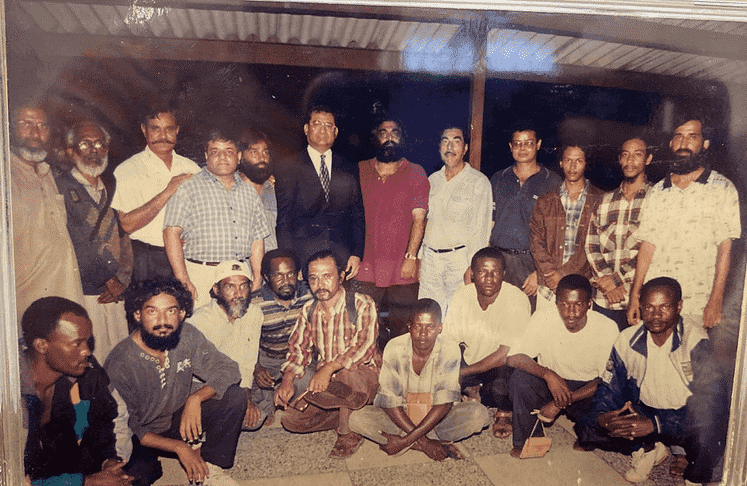
From right to left (standing)
Zakariya Sabir (Fifth Engineer / Pakistan) – Ali (Able Seaman / Mayanmar) – Kokotun (Able Seaman / Mayanmar) – Imtiaz Hussain (Radio Officer / Pakistan) – Muhammad Ismail (Chief Engineer / Pakistan) – Altaf Hussain (Captain / Pakistan) – Mr. Hameed Kidwai (Pakistani High Commosioner in Kenya) – Parvez Abdul Rahim (Chief Officer / Pakistan) – Muhammad Asif (Marine Superintendent / UK) – Salim Baig (Electrical Engineer / Pakistan) – Zaheer Ahmed (Forth Engineer / Pakistan) – Munawar Hussain (Second Engineer / Pakistan)
From right to left (sitting)
Unknown (Able Seaman / Tanzania) – Unknown (Able Seaman / Tanzania) – Edwin Wambura (Deck Cadet / Tanzania) – Unknown (Cleaner / Tanzania) – Kusmana (Third Engineer / Indonesia) – Unknown (Assistant Cook / Tanzania) – Akhtar Hussain (Fitter / Pakistan) – Kazim Abbas (Second Officer / Pakistan) – Victor (Cleaner / Tanzania)
Note:
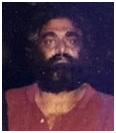
Captain Altaf Hussain was based in Islamabad. He held the position of captain but did not exhibit any qualities of a leader. He could also be considered the most disliked person among the officers, as he was predominantly self-interested. In matters of food or security, he always prioritized his own interests. Once, he even beat the cook, who was a very honorable person, and had a fight with the fifth engineer. The six crew members from Tanzania also had arguments with him. They even carried sticks with them while being released, with the intention of taking revenge on the captain. However, the other officers intervened and prevented any further conflict. After this incident of Sea Johana, I never saw or met the captain again.

Chief Officer Parvez Abdul Rahim is a hero in this story. He always remained hopeful, gave comfort to others, and boosted morale. In practical terms, Parvez was an alternative to the captain because the members of the crew did not find it acceptable to talk to the captain. Because of this, the captain was also unhappy with him. Another thing was that British national Muhammad Asif was a childhood friend of Parvez. Parvez claimed that Asif would not leave us alone, I know him well. And Asif proved this. He tried to help us in our ignorance and was also present for our welcome on release. Not only that, but he also helped us at every stage until we reached our home. Twenty years later, I met Asif Sahib in Singapore, and we also talked about this incident. Parvez Abdul Rahim kept our spirits high, made us pray, recited Quranic verses, and made us recite them after Asr prayer. He was a very good person. I met him in Singapore after twenty years. Parvez Sahib resides in USA. He never went on a ship after this incident. During this captivity, his daughter was born. He suffered extreme hardship during that time. Despite this, not only did he maintain a positive attitude himself, but he also advised us all to maintain a positive attitude. His role was undoubtedly that of a senior… After this incident of Sea Johana, I never saw or met the captain again.
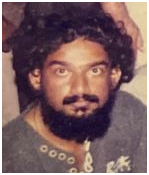
I was ranked third. You all know about me because this book mostly revolves around me. I was the one who was victimized the most. I was one of the twenty-one members of the crew who were beaten. Even among those two members, I was tortured the most, and I couldn’t recover from its effects for a long time. It was the kindness of Chief Officer Parvez that kept my spirits up in those circumstances. Whenever the captain and the chief officer were taken away for conversation, they would leave me responsible for the crew. I looked after the team in light of their instructions. I tried my best. I remained positive and truthful in my dealings with the situation. My sixth sense often reminded me of the dangers. I never had a fight with any member of the team. After this incident of Sea Johana, I never saw or met the captain again.
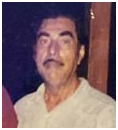
In seniority, the Chief Engineer Muhammad Ismail was at number four. He belonged to Multan. He had identified us as being Shia. He stayed on the ship for almost three months, under the pretext of being treated, and remained in better condition than the other people. In the last one and a half months, he was with us. He was a self-centered person and later apologized to me and the Second Engineer for making us targets of violence because of his identification. But we did not like him, and even the other crew members did not like him because despite the deteriorating condition of the ship, he was responsible for getting the ship out on this journey. If he had emphasized in Mombasa that the ship was not capable of crossing the Indian Ocean, the captain would not have taken the ship. His professional abilities were also questionable. He was an old man, and he took this risk because he did not get a job, which caused twenty-one people to go through the difficulties of being imprisoned for four and a half months. He realized the severity of his mistake, so he did not leave Karachi airport because he thought the rest of the nine Pakistanis were ready to settle the score with him outside. After this incident of Sea Johana, I never saw or met the captain again.
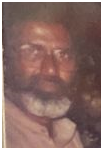
n seniority, Second Engineer Munawwar Hussain (my Uncle), was at number five. He passed away in 2021. He was one of the other Shia crew members with me at that time. He was 57 years old at the time of his death. I happened to meet him at a wedding a year before his death and we spent a lot of time together, reminiscing about our bitter memories. Due to his advanced age, he had difficulty tolerating the conditions, but it is not easy to bear such responsibilities at his age. He was a devout man and encouraged us to cry and complain after prayers rather than crying needlessly. Due to his lack of patience, he also had disagreements with some people. When a camel-milk delivery man brought us some milk, we were all happy that we could have tea with milk today, but this gentleman drank all the milk himself and later played a trick. Perhaps this childish behavior was the result of some mental pressure. He was also my uncle through marriage, so I was able to manage him at times. Other members of the crew also started calling him Phupha due to his relationship with me. May Allah bless him with his mercy. Ameen.Parvez Abdul Rahim kept our spirits high, made us pray, recited Quranic verses, and made us recite them after Asr prayer. He was a very good person. I met him in Singapore after twenty years. Parvez Sahib resides in USA. He never went on a ship after this incident. During this captivity, his daughter was born. He suffered extreme hardship during that time. Despite this, not only did he maintain a positive attitude himself, but he also advised us all to maintain a positive attitude. His role was undoubtedly that of a senior… After this incident of Sea Johana, I never saw or met the captain again.
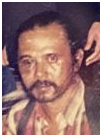
Kusmana, the third engineer, held the sixth rank in seniority. He hailed from Indonesia and possessed a melodious and poignant voice. Owing to his gift of voice, the responsibility of leading the call to prayer during captivity fell on him for four months. Kusmana was a kind-hearted and cooperative person, and the sheer beauty of his voice can be gauged from the fact that even the Somalis brought a tape recorder to record his call to prayer. Upon hearing his call to prayer, we would weep and wail in the midst of our acute suffering, feeling a sense of proximity to God. Kusmana had an unfortunate altercation with his Burmese colleague, Ali, a few days before his release. The dispute turned physical, and Ali struck him in the eye, as can be seen in the picture. However, Kusmana remained a good person. He was one of the three individuals, along with Ali and Kokotan, who had been on the ship for two years and had not had the chance to see their families. During captivity, Kusmana had the responsibility of filling water, which he did with great joy and enthusiasm. After this incident of Sea Johana, I never saw or met the captain again.
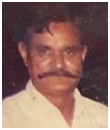
At number seven was the electrical engineer, Batti Sahib. His name was Salim Baig. If the Chief Officer could be awarded a gold medal in this whole matter, then Batti Sahib could be given a silver medal. His positive attitude, hard work, love, sensitivity towards others, not quarreling with anyone, not venting his anger on others, all these qualities made him stand out from others. He took care of me and the second engineer, not only of Pakistanis but also of people of other nationalities. In most cases, he was the one who, alongside me, settled disputes and diffused tensions. Most people agreed with me after seeing my condition. I never met Batti Sahib again. I heard that he was transferred to Peshawar and never served on the ship again. After this incident of Sea Johana, I never saw or met the captain again.
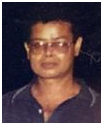
n seniority, Second Engineer Munawwar Hussain (my Uncle), was at number five. He passed away in 2021. He was one of the other Shia crew members with me at that time. He was 57 years old at the time of his death. I happened to meet him at a wedding a year before his death and we spent a lot of time together, reminiscing about our bitter memories. Due to his advanced age, he had difficulty tolerating the conditions, but it is not easy to bear such responsibilities at his age. He was a devout man and encouraged us to cry and complain after prayers rather than crying needlessly. Due to his lack of patience, he also had disagreements with some people. When a camel-milk delivery man brought us some milk, we were all happy that we could have tea with milk today, but this gentleman drank all the milk himself and later played a trick. Perhaps this childish behavior was the result of some mental pressure. He was also my uncle through marriage, so I was able to manage him at times. Other members of the crew also started calling him Phupha due to his relationship with me. May Allah bless him with his mercy. Ameen.Parvez Abdul Rahim kept our spirits high, made us pray, recited Quranic verses, and made us recite them after Asr prayer. He was a very good person. I met him in Singapore after twenty years. Parvez Sahib resides in USA. He never went on a ship after this incident. During this captivity, his daughter was born. He suffered extreme hardship during that time. Despite this, not only did he maintain a positive attitude himself, but he also advised us all to maintain a positive attitude. His role was undoubtedly that of a senior… After this incident of Sea Johana, I never saw or met the captain again.
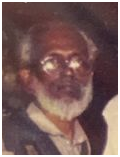
After that, at number nine, it was the Fourth Engineer Zaheer Ahmed. He was a thin, slender man with a curved posture. During captivity, he developed tuberculosis and remained sick. His hair had turned white in front of us. His mental state was worse than others. He mostly kept to himself and talked to himself. Among the people who were immediately sent for medical assistance after release, Zaheer Ahmed was also included with me. He was a kind man. I never met him again.He was called RO Sahib. We never met again after our release. Although he was from Karachi, I could not find out anything about him. Kusmana had an unfortunate altercation with his Burmese colleague, Ali, a few days before his release. The dispute turned physical, and Ali struck him in the eye, as can be seen in the picture. However, Kusmana remained a good person. He was one of the three individuals, along with Ali and Kokotan, who had been on the ship for two years and had not had the chance to see their families. During captivity, Kusmana had the responsibility of filling water, which he did with great joy and enthusiasm. After this incident of Sea Johana, I never saw or met the captain again.
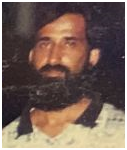
In Pakistani officers, at the last number was Fifth Engineer Zakaria Sabir, who was also known as “Panju.” This was Zakaria’s first ship. He was younger than me. He was not considered a regular officer, but he was seen as an officer under training. He was a brave and courageous man. Despite the first experience of the ship and such dangerous situations, he made every effort to save us from the violence of the pirates by using his identity as a Muslim. Killing snakes, burying them, experimenting on them, all these tasks were Zakaria’s responsibility. He belonged to a good family, but because of his passion, people called him a butcher. When the captain beat up the Indian cook who used to cook us food even in those circumstances, Zakaria Sabir went to fight with the captain to support the oppressed. I learned that after this incident, he also left Merchant Navy and never went back to the ship. I never met Batti Sahib again. I heard that he was transferred to Peshawar and never served on the ship again. After this incident of Sea Johana, I never saw or met the captain again.
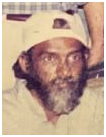
The last name in the Pakistani squad is Akhtar Hussain, who worked as a welder and fitter. He was a very good guy. His hearing sense was very sharp. He could hear a car from miles away, and in a little while, the car would actually arrive. Similarly, in the jungle, he would sense the presence of any animal from a distance. His sixth sense was very sharp. Akhtar also suffered a heart attack during his captivity, but by the grace of God, he recovered. I have never met Akhtar again, and I don’t know how he is doing. It has been thirty years since I left Pakistan, and maybe someday I will meet these friends again in life.After this incident of Sea Johana, I never saw or met the captain again.

Abbas was from India and he was part of the cooking staff. He was an extremely honest and noble person. Even during his imprisonment, he would make a stove with blocks and cook rice without spices for us by blowing on it continuously. He was the unfortunate person who became the target of the captain’s reprimand for not getting him proper food. Abbas was very upset and kept crying. The truth is that his duty was on the ship, and when the ship was no longer there and everyone was in captivity, he had no responsibility to cook for us.Kusmana had an unfortunate altercation with his Burmese colleague, Ali, a few days before his release. The dispute turned physical, and Ali struck him in the eye, as can be seen in the picture. However, Kusmana remained a good person. He was one of the three individuals, along with Ali and Kokotan, who had been on the ship for two years and had not had the chance to see their families. During captivity, Kusmana had the responsibility of filling water, which he did with great joy and enthusiasm. After this incident of Sea Johana, I never saw or met the captain again.

Jagat was also from India and he was a part of the cadet corps as a deck cadet. Like Zakariya Sabir, this was also his first experience. A deck cadet is, in a way, an under-training officer. Jagat was Christian. He was a hardworking boy who, like us, had come into the cycle of fate. Jagat used to help everyone in filling water and other tasks. Our number was twenty-one and besides cooking, we also needed a sufficient amount of water for ablution and other necessary purposes. To bring water, we had to go about seven kilometers to the well. For this, healthy people were assigned. Sometimes I used to go for bathing and on the way back, I used to help my companions. Jagat was always ahead in these situations.After this incident of Sea Johana, I never saw or met the captain again.
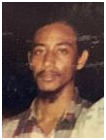
Ali was from Burma. He was also one of those people who were already on the ship when we reached Tanzania. These people did not go to their homes for a long time or did not want to go to their country due to civil war. Because Ali was already on the ship, he had knowledge about many things on deck. Similarly, Kusmana had knowledge about things related to the engine. Ali was called the Able Seaman, which is a senior sailor’s position. He and Kokotun were among those who engaged in an “optical romance” with Somali women during our captivity, which made our kidnappers very angry. I also scolded both of them for this.I learned that after this incident, he also left Merchant Navy and never went back to the ship. I never met Batti Sahib again. I heard that he was transferred to Peshawar and never served on the ship again. After this incident of Sea Johana, I never saw or met the captain again.

Kokotun was also a senior sailor and he was also from Burma (Myanmar). He was younger than Ali. Both of them used to cooperate and listen to the officers. He was also involved in the wrong actions with Ali, which are mentioned in the book. When I scolded them for this, they corrected their behavior. Both of these Burmese boys used to help us in all the work, whether it was fetching water, serving food, or other tasks. They both used to assist us.

The remaining six crew members were from Tanzania and were recruited for the ship from Tanzania. One of them was a second cook whose name I cannot recall. He was an elderly man who did things his own way and did not listen to others. Because these six members were Christians and the Somali pirates were Muslim extremists, these people were always afraid. Their perception of Muslims was not good anyway. These circumstances had created bitterness and hostility in their hearts, and I believe they were right in those circumstances. This person was Abbas’s assistant, but he did not provide any special help during that whole period. Rather, the Tanzanian crew had formed their own separate group, of which this person was the leader. These people kept their affairs separate and slept separately.
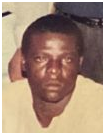
This was also a cadet from Tanzania. I remember his name because he was a strong and powerful man. He must have been about 20-25 years old. He was the same person who held me tightly when Batti Sahib and the captain operated on my leg and removed the thorn and poisonous substance from my foot. I was writhing in pain like a fish out of water at that time. The operation that should have been performed in an operation theater of a hospital was done on sand in some wilderness of Africa with a rusty scissor. Even today, the thought of it makes my hair stand on end. After that operation, I couldn’t put my foot on the ground for several weeks. From this perspective, Edwin Wambura is my benefactor.I never met Batti Sahib again. I heard that he was transferred to Peshawar and never served on the ship again. After this incident of Sea Johana, I never saw or met the captain again.
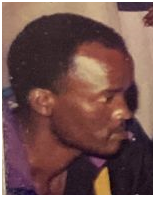
Victor’s job was to clean the engine room and the ship. He was also a Christian resident of Tanzania. Checking oil and other things was also included in his responsibilities. During the period of captivity, out of fear and self-interest, Victor became a Muslim and changed his name from Victor to Jamal. However, when we were released, he announced that he had become a Muslim only out of fear and that he was a Christian at heart, so he should be called Victor again. These Tanzanian people also tried to fight us, but their courage was not enough because our numbers were greater, so there was no fighting. Perhaps it was due to the mental state we all were suffering.

The remaining six crew members were from Tanzania and were recruited for the ship from Tanzania. One of them was a second cook whose name I cannot recall. He was an elderly man who did things his own way and did not listen to others. Because these six members were Christians and the Somali pirates were Muslim extremists, these people were always afraid. Their perception of Muslims was not good anyway. These circumstances had created bitterness and hostility in their hearts, and I believe they were right in those circumstances. This person was Abbas’s assistant, but he did not provide any special help during that whole period. Rather, the Tanzanian crew had formed their own separate group, of which this person was the leader. These people kept their affairs separate and slept separately.
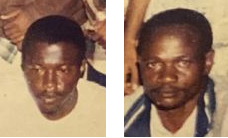
They were both Able Seamen working on the ship’s deck. One of them was relatively more diplomatic and self-interested, and he prevented his colleagues from getting involved with us. When the people of Tanzania came with sticks to beat the captain, these two also played a role in saving him.After this incident of Sea Johana, I never saw or met the captain again.